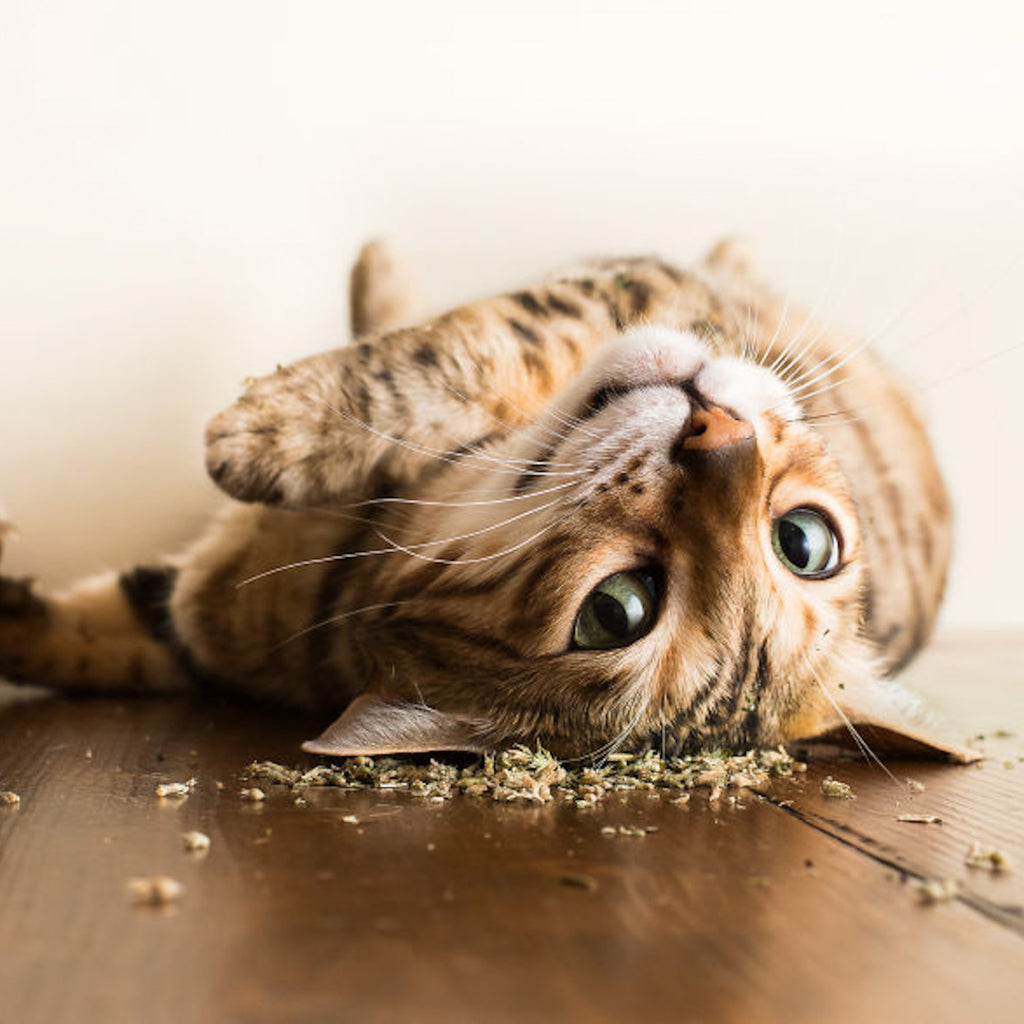Why Cats Love Catnip?

The Curious Case of Catnip:
Unraveling the Feline Fascination
Introduction: Cats have a mysterious allure, and one of the most intriguing aspects of their behavior involves their undeniable fascination with a certain plant - catnip. If you've ever seen a cat encounter catnip, you know it can be quite a spectacle. But why do cats react this way to catnip? In this blog post, we'll explore the science behind this curious phenomenon and shed light on the reasons behind their love for this enchanting herb.
What is Catnip? Catnip, scientifically known as Nepeta cataria, is a perennial herb belonging to the mint family. Native to Europe and Asia, it is now widely cultivated around the world. The plant produces a compound called nepetalactone, which is the secret behind its effects on our feline friends.
The Role of Nepetalactone: When cats come into contact with catnip, the nepetalactone compound interacts with specialized receptors in their nasal tissue. These receptors trigger sensory neurons that transmit signals to the brain, particularly to the olfactory bulb and amygdala, which are responsible for processing odors and emotions, respectively.
Effects on Cats: The response to catnip can vary from one cat to another, but common reactions include:
1. Playfulness: Many cats become noticeably more active and playful after sniffing or ingesting catnip. They might pounce, chase imaginary prey, or roll around in apparent delight.
2. Relaxation: Surprisingly, while some cats get hyperactive, others may exhibit a more tranquil response. They might become calm, even lethargic, and appear to enter a state of relaxation.
3. Repetitive Behaviors: Cats often display repetitive actions when exposed to catnip. They may rub their faces against the source of catnip or repeatedly roll on the ground to extend their enjoyment.
Genetics and Sensitivity: Not all cats respond to catnip, and the reason lies in genetics. The sensitivity to catnip is an inherited trait, with approximately 50-75% of cats having a genetic predisposition to react to it. Interestingly, kittens do not typically react to catnip until they reach sexual maturity.
Temporary Nature of the Response: The effects of catnip on cats are generally harmless and temporary. The entire encounter typically lasts between 5 to 15 minutes. After this period, cats may lose interest in the catnip for some time before becoming responsive again later on.
Using Catnip Responsibly: As cat owners, it's essential to use catnip responsibly. While it can be a source of fun and enrichment for our feline companions, excessive exposure may lead to a decrease in sensitivity over time. Using catnip as an occasional treat or incorporating it into cat toys can provide mental stimulation and entertainment without overindulging.
Conclusion: The allure of catnip continues to captivate both cats and their human companions. Thanks to the fascinating compound nepetalactone, cats can experience a range of reactions, from playfulness to relaxation. Remember to offer catnip in moderation, respecting your cat's individual sensitivity, and providing them with an enriching and enjoyable experience. So, next time you watch your cat gleefully indulge in catnip, take delight in knowing that you're witnessing a peculiar and natural quirk that adds to the wonder of our feline friends.
FAQ's
1. What does catnip do to a cat? Catnip (Nepeta cataria) can have various effects on cats. When cats come into contact with catnip, they may exhibit behaviors like increased playfulness, excitement, and in some cases, a more relaxed state. This reaction is due to the compound nepetalactone in catnip, which stimulates certain sensory receptors in their nasal tissue and triggers behavioral responses.
2. Is it OK to give cats catnip? Yes, it is generally safe to give cats catnip in moderation. Catnip is non-toxic and not addictive to cats. Most cats enjoy the experience, and it can serve as a form of mental stimulation and enrichment for them. However, not all cats are affected by catnip, and some may not show any response at all.
3. Why do people give cats catnip? People give cats catnip as a form of environmental enrichment and entertainment. Catnip can make playtime more enjoyable for cats and encourage them to engage in playful behaviors. It also provides mental stimulation, keeping them mentally active and engaged.
4. Can I give my cat catnip everyday? It's not recommended to give your cat catnip every day. Cats can build up a tolerance to catnip if exposed to it too frequently, leading to a decreased response over time. To maintain its effectiveness, it's best to offer catnip as an occasional treat or part of playtime, allowing your cat to fully enjoy the experience each time.
5. Do cats enjoy being high on catnip? While it's not accurate to say that cats get "high" on catnip like humans do with certain substances, they do seem to enjoy the experience. The reactions to catnip can vary from excitement to relaxation, and most cats appear to find it pleasurable. However, it's important to note that the effects are temporary and wear off after a short period.
Try our Catnip Treats and Toys


